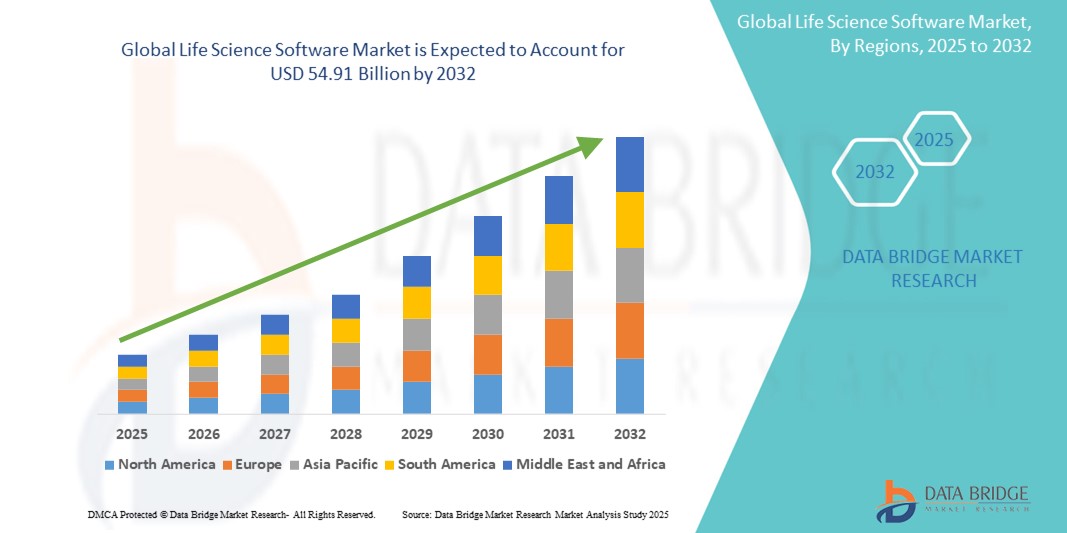
Life Science Software Market Landscape - Scope, Valuation, Trends, Outlook, and Sector Overview
"Executive Summary Life Science Software Market :
During the forecast period of 2025 to 2032 the market is likely to grow at a CAGR of 12.90%, primarily driven by the rising prevalence of chronic diseases
A market research analysis and estimations carried out in this Life Science Software Market report aids businesses in gaining knowledge about what is already there in the market, what market looks forward to, the competitive background and steps to be followed for outdoing the rivals. With the comprehensive analysis of the market, it puts forth overview of the market regarding type and applications, featuring the key business resources and key players. Further, manufacturer can adjust production according to the conditions of demand which are analysed here. The Life Science Software Market underlines the global key manufacturers, to define, describe and analyze the market competition landscape with the help of SWOT analysis.

Graphs, TOC, and tables included in the report help understand the market size, share, trends, growth drivers and market opportunities and challenges. This report presents with the key statistics on the market status of global and regional manufacturers and also acts as a valuable source of leadership and direction. The company profiles of all the key players and brands that are dominating the market have been given in this report. The statistical and numerical data are represented in graphical format for a clear understanding of facts and figures. With this report not only an unskilled individual but also a professional can easily extrapolate the entire market within a few seconds.
Discover the latest trends, growth opportunities, and strategic insights in our comprehensive Life Science Software Market report. Download Full Report: https://www.databridgemarketresearch.com/reports/global-life-science-software-market
Life Science Software Market Overview
https://www.databridgemarketresearch.com/reports/global-life-science-software-marketThe life science software market is experiencing a significant transformation driven by technological advancements and increasing demand for innovative solutions across various segments. One emerging trend in the market is the growing adoption of AI and machine learning algorithms to enhance the efficiency and accuracy of data analysis in areas such as genomics and proteomics. These technologies enable researchers to process vast amounts of biological data quickly, leading to discoveries and insights that were previously inaccessible. Additionally, the integration of cloud computing and big data analytics is revolutionizing how life science organizations store, manage, and analyze data, enabling real-time collaboration and decision-making.
Another key development in the market is the rising focus on precision medicine, personalized healthcare, and clinical diagnostics. Life science software plays a critical role in supporting these initiatives by providing tools for analyzing patient data, identifying genetic markers, and developing targeted therapies. As the demand for personalized treatments continues to grow, software developers are investing in solutions that can support individualized patient care and drive advancements in precision medicine.
Moreover, the increasing adoption of IoT devices and sensors in healthcare settings is creating new opportunities for life science software vendors. IoT technology enables continuous monitoring of patients, collection of real-time health data, and remote patient management, which can significantly improve patient outcomes and reduce healthcare costs. Life science software that can integrate and analyze data from these connected devices will be essential for harnessing the full potential of IoT in healthcare.
Furthermore, regulatory compliance and data security are becoming top priorities for life science organizations, driving the need for software solutions that can ensure data integrity, privacy, and compliance with industry regulations. As the industry becomes more data-driven and interconnected, software vendors will need to focus on developing robust security features and compliance tools to address the evolving regulatory landscape.